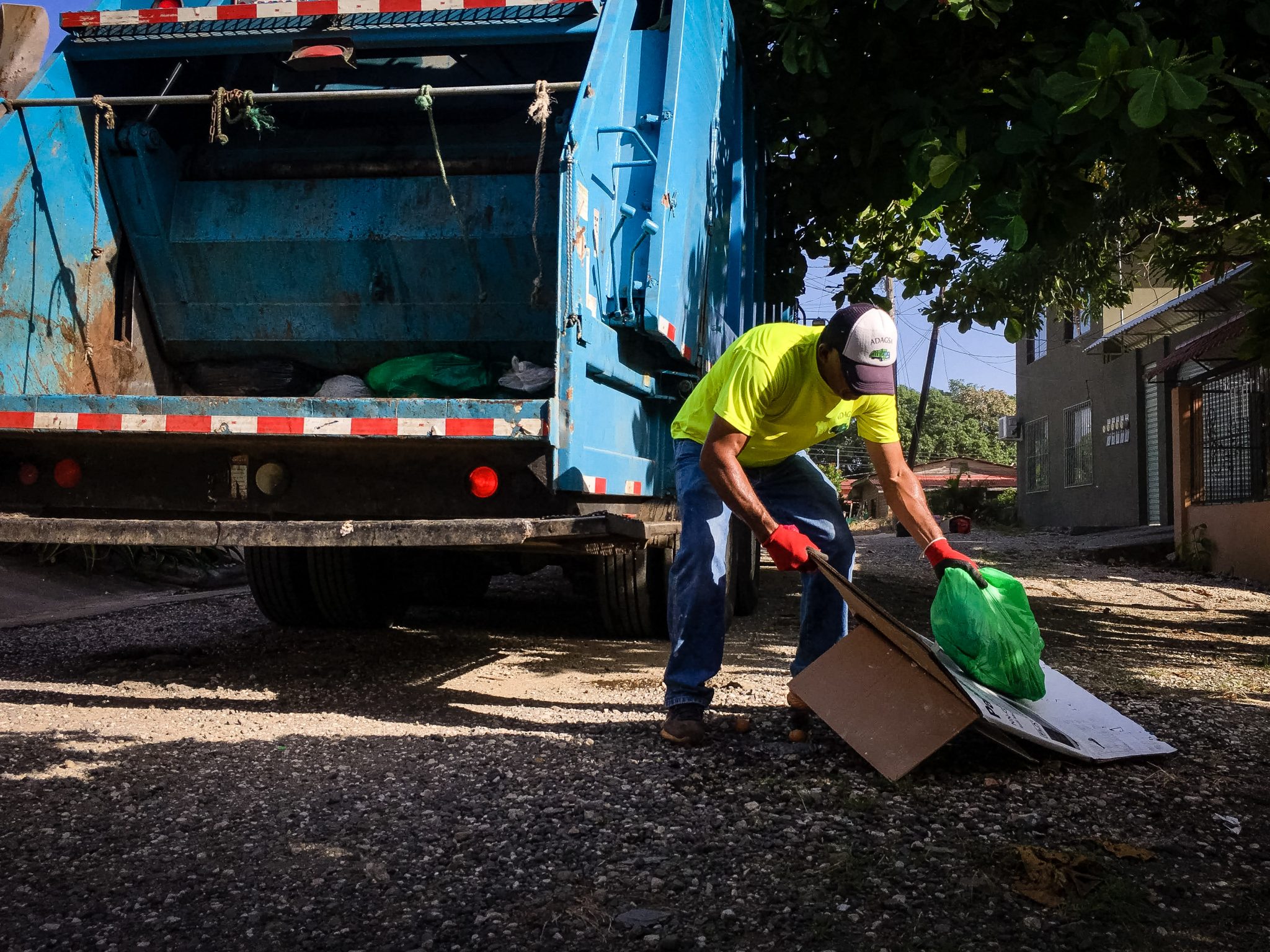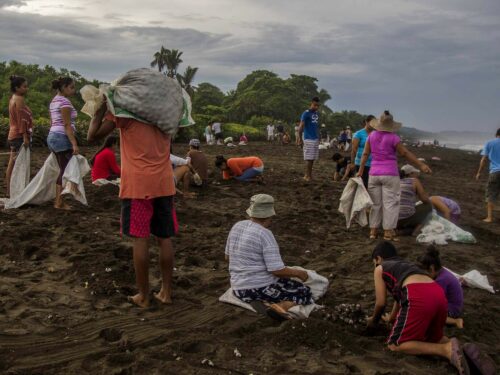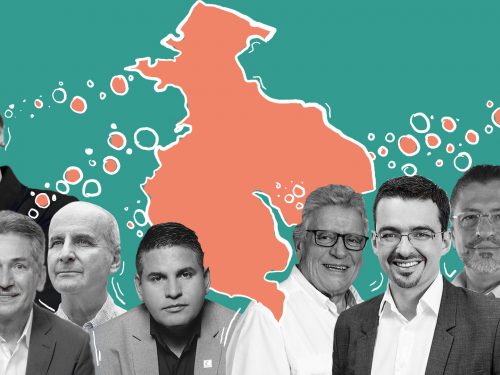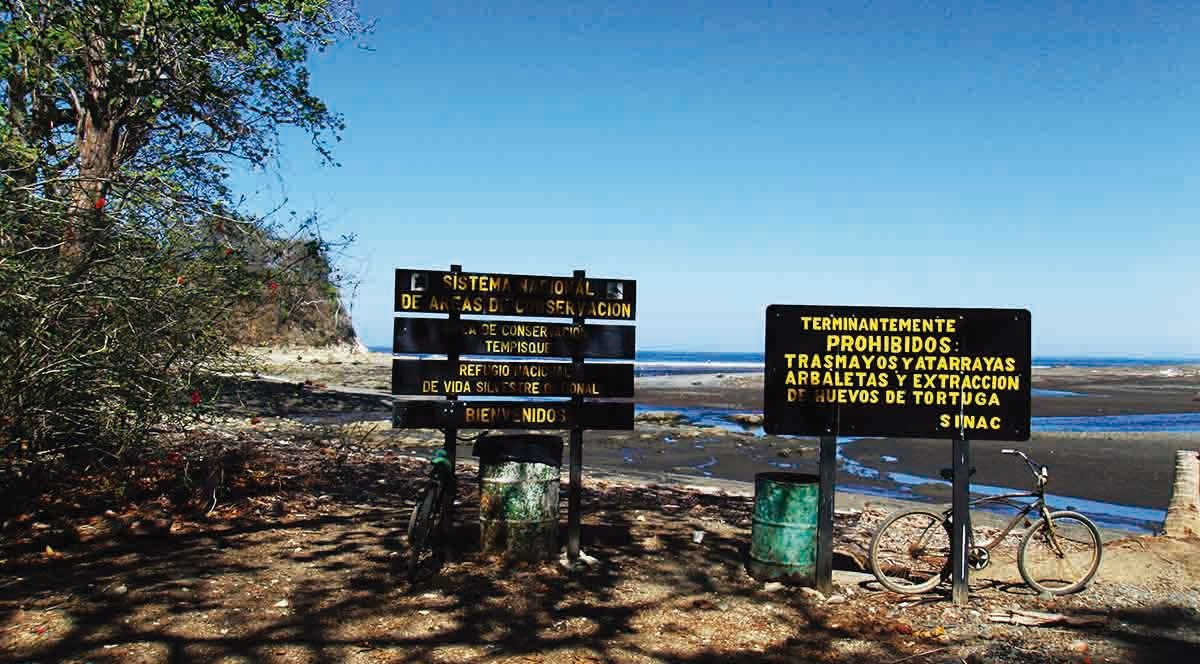
A new draft law could suspend the charging of taxes and municipal patents for some months, and allow local governments to use their surplus to keep offering basic services such as garbage collection, roads maintenance and water.
The text was presented on April first by the Asociación Nacional de Alcaldías e Intendencias (ANAI) and the Unión de Gobiernos Locales (UNGL).
“Our project seeks to allow whoever has a patent and want to suspend it completely without the need to incur in additional expenses when they want to renew it, but it is for those establishments that are not generating sales”, added Juan Pablo Barquero, UNGL president and actual mayor of Tilarán.
The project states that local governments could suspend patents for twelve months. When this period ends, users would have ten business days to request reactivation.
The draft project allows the municipalities to use their specific surplus to cover the payment of municipal services in exceptional cases of families which incomes were severely reduced by Covid-19. The specific surplus is that which by law has to be used in certain works in the communities, such as streets and infrastructure, usually a significant amount of it remains unused, perhaps for years.
For example, in 2019, La Voz de Guanacaste found that the execution of the money of various projects in cantons of Cañas and Bagaces could take up to nine years because of things such as poor planning or insufficient municipal staff.
“The idea is that a percentage of the surplus helps to cover those people who cannot continue paying taxes of basic services, such as water. For this to work, the people who have the possibility of paying municipal payments because they are not seeing their wages affected, in solidarity must continue to do so”, said Barquero.
Permission to use the surplus
According to Barquero, the permission to use the surplus would ensure the municipalities that are aloud to use this “extra surplus” so that communities are not left without basic services such as water, security, garbage collection, and road cleaning.
Those available surplus resources vary depending on each local government, but a report by the Comptroller indicates that most have at least part of the accumulated money. In the period from 2015 to 2019, only 17 out of 81 cantons executed an average of more than 80% of their budget during the four years, another 55 executed between 70% and 60% and the last 10 spent less than 59%. The report does not include the new canton of Río Cuarto.
“It would be the possibility of using the free and specific surplus,” explains Barquero, “We are asking the Assembly, exceptionally and for reasons of the emergency, [allow us to do that] so we can cover the operating expenses that we already have”.
Despite the measure, the Legislative Assembly could not tell each local government how to spend its money. Municipal Code No. 7794 includes a principle of autonomy for local governments that leaves it up to the municipality itself to define what is considered an emergency.
How should the surplus be used?
Every year, the country’s municipalities make their municipal budget, which is approved by the Contraloría General de la República (CRG). The surplus is the remaining per year of this budget.
There are two types of surplus: the free and the specific. The free one is that remaining that the municipalities can invest at their discretion, but the specific one is “tied” by law for specific works, such as the budget for streets of the Cantonal Road Network. The project would allow municipalities to “untie” it and use it to solve the emergency.
That could perhaps impact municipalities such as Puntarenas, which – prior to the start of the crisis – was already characterized by its high unemployment rate of 17% and a poverty level that reaches approximately 29% in the Central Pacific Region, according to the Instituto Nacional de Estadística y Censo. Predicting that this situation will become more acute, if the bill is approved, the municipality could use the surplus to continue providing basic services to families whose income was reduced due to the measures adopted by Covid-19.
Prior to the difficulties caused by Covid-19, that municipality executed an average of 64% of its budgets between 2015 and 2019, according to the 2020 Public Budget Report.
The mayor of Puntarenas, Randall Chavarría, affirms that the pandemic has aggravated the situation of the canton with a strong blow to the tourist sector, but that they are still awaiting the formal text of the bill to make a decision.
Chavarría acknowledges that in a pandemic failure to provide garbage or water collection services would worsen the well-being of the communities, but admits concern for the budget since “Puntarenas rents these services.” If no measure is approved and if a part of the citizenry cannot pay taxes, the services may be affected.
On the other hand, Ilse Gutiérrez Sánchez, mayor of the canton of Guatuso, assures that her canton “is in deficit.”
“It is hard with our surplus because we don’t have one. In our case, we are evaluating who can suspend the patent, but we are still in the stage of doing the study, and for budget reasons we cannot suspend it at all,” he assured.
Despite what Gutiérrez points out, the data reported by the same municipality to the Comptroller shows an execution of 43%, 36% and 55% between 2017 and 2019. Furthermore, according to the most recent Municipal Management Index, in the “Financial Management” item, Guatuso obtained a score of 50.37 out of 100 points.
Datos del Informe de Presupuestos Públicos 2020 de la Contraloría, entre el periodo de 2015 al 2019. Informe no incluye a Río Cuarto.

Datos del Informe de Presupuestos Públicos 2020 de la Contraloría, entre el periodo de 2015 al 2019. Informe no incluye a Río Cuarto.
In other words, according to these data, in the canton of Guatuso there is a significant surplus that, if the project is approved, could be used to cover the payment of basic services for those families that cannot do so.
In the other hand, is San Carlos, the canton that most executes its budget, with an average execution of 91% between 2015 and 2019. Walter Hernández, head of the Public Relations department, commented that they do know the project and they support it, but since they don’t have a surplus, San Carlos must “undermine the belt” and beware that people who can pay tribute or taxes do so.
“We already froze between 40% and 50% of the approved budget for all areas. Overtime pay was also frozen. Moreover, we are evaluating it and we do not want to get to that, to try to do without some officials”, said Hernández.

Datos del Informe de Presupuestos Públicos 2020 de la Contraloría, entre el periodo de 2015 al 2019. Informe no incluye a Río Cuarto.
The spokespersons for the three municipalities (Guatuso, with the lowest execution of surplus, San Carlos, with the highest execution, and Puntarenas, with an intermediate case), assured that they will make every possible effort so that the local government can continue offering services such as water or garbage collection, but that in order to apply the project in their respective municipalities, they are still in an adaptation phase.
This adaptation phase consists of studying which businesses may have their patent suspended, which families may have difficulties paying municipal taxes and which may not.
Datos del Informe de Presupuestos Públicos 2020 de la Contraloría, entre el periodo de 2015 al 2019. Informe no incluye a Río Cuarto.
“Precisely to protect the most vulnerable people, we need this surplus,” said Barquero, president of the UNGL and mayor of Tilarán. “These are specific measures that will allow the canton to continue to have security, a functioning cemetery, water in their houses and the cleaning of public areas, such as the streets.”
Currently, Barquero explains that the project was delivered to the working table on municipal issues in the face of the national emergency, which is coordinated by the liberationist deputy María José Corrales. That is, it is not Law yet.
The bill is, in fact, a counterproposal to two other bills that are already in the legislative agenda. Liberación Nacional (PLN) and Nueva República (PNR) parties suggested that taxpayers and those who had a patent, could access a decrease in fees for service charges and other municipal charges of up to 50%, but not the suspension.
For the UNGL and ANAI bill turn out into a Law, the initiative must be received by at least 10 deputies and admitted in Plenary to be passed on to a Special Commission that will issue an opinion. Subsequently, it returns to Plenary, where it must be discussed and voted on in two debates. Then the bill is sent for the President of the Republic to sign and become law of the republic.
 Loading...
Loading...
********
Esta nota forma parte de la cuarta edición del proyecto GuanaData, que en esta ocasión es llevado a cabo por La Voz de Guanacaste en conjunto con el International Center for Journalism, gracias a una beca de la embajada de Estados Unidos. GuanaData pretende analizar los presupuestos de seis gobiernos locales del país con el fin de transparentar la función pública y combatir la corrupción dentro de las municipalidades.







Comments